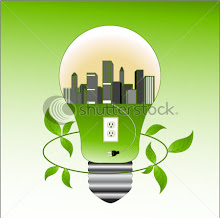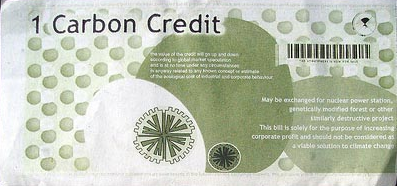THE latest World Bank figures show that India has emerged as a big player in the carbon trading market, ranking as the second-largest seller of carbon credits in the global market last year.
Although its share is only 6%, as compared with China's gigantic 73%, India now has 930 carbon credit projects in the pipeline.
For every tonne of carbon dioxide reduced, the company receives a carbon emission reduction (CER) certificate that it can sell like any other commodity. The current price is around €10-17 ($A16-27) per credit.
Most of India's carbon credits are bought by companies in developed countries that have ratified the Kyoto Protocol on climate change.
Under the protocol, developed countries must cut all greenhouse gas emissions by an average 5% below 1990 levels by 2012.
If companies in the West fail to cut their own emissions (usually because it is very expensive to change over to cleaner technologies in developed countries), they can offset this failure by investing instead in projects in the developing world that also cut pollution.
India is not obliged to cut emissions, as its energy consumption is low. For Indian companies, this trade offers a great opportunity.
Torrent Power, for example, which has a coal-fired power plant in western India, switched to natural gas recently. Gas is a cleaner fuel than coal because it emits fewer greenhouse gases.
The project was registered with the executive board of the Clean Development Mechanism. Torrent is now set to earn almost 3.2 million carbon credits annually from this reduction in emissions.
"This is a great opportunity for Indian companies to invest in clean technology.
In a broader sense, the idea behind carbon trading is that it allows countries such as India, China and Brazil to grow economically but in a more environmentally friendly way.
Mrs Choudhury says that hundreds of companies are jumping onto the carbon credit bandwagon by adopting cleaner technologies.
Even big household names such as Reliance Industries, Grasim Industries and Tata Chemicals are considering investing in carbon trading.
In some cases, the money that some companies earn from the sale of carbon credits exceeds revenue from their main area of business.
Last year, Indian companies made $US300 million by selling CERs (each CER is equivalent to one tonne of carbon dioxide).
By 2012, India's earnings are estimated to jump to $US3.6 billion.
"Initially, managements were not willing to invest money and time as they weren't sure of the potential," said Arvinder Sethi, director, climate change, at the Ministry of Environment and Forests. "Then we joined hands with industry bodies to make them aware that this is a win-win proposition."
The World Bank estimates that the potential for India from this trade is around $US100 billion annually.
Carbon credits are traded in European commodities markets and a bank official said that one reason for the success of the carbon credit business in India was that it was cheaper to buy credits from India than Europe.







